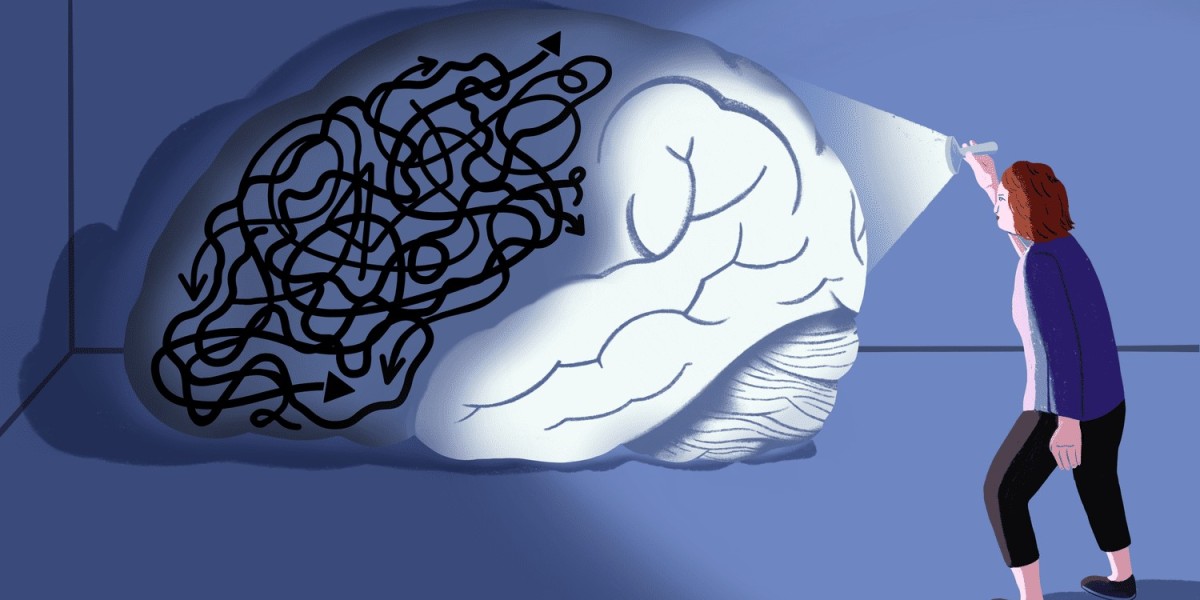Sleep and Attention Deficit Hyperactivity Disorder (ADHD) have a complex relationship in which each influences the other in different ways. Comprehending this interaction is essential for recognising, assisting, and providing support to people navigating the intricacies of sleep problems linked to ADHD.
The Relationship Between Sleep and ADHD
ADHD and sleep issues frequently coexist, interacting in a number of important ways:
Delayed Sleep Onset: Having trouble falling asleep because of restlessness or racing thoughts.
Frequent nighttime awakenings that cause irregular sleep patterns are known as fragmented sleep.
erratic Sleep Schedules: erratic sleep patterns brought on by hyperactivity or impulsivity.
Effect on Symptoms of ADHD
ADHD symptoms are made worse by sleep disturbances, and vice versa, resulting in a feedback loop:
Impact on Symptoms of ADHD
Attention and Focus: Sleep disturbances affect a person's capacity for concentration and attention span.
Impulsivity and Hyperactivity: During the day, impulsivity and hyperactivity may become worse due to insufficient sleep.
Gratitude In ADHD, sleep
Prioritize Sleep Quality Over Quantity: Don't just increase the amount of time you spend sleeping; instead, concentrate on making it better.
Optimizing wakefulness during the actual sleep phase to improve cognitive performance is known as sleep efficiency.
Strategies for Sleep Hygiene
Creating a routine at night can help you tell your body when it's time to go to sleep.
Optimizing the environment for sleep involves reducing distractions and disruptions and creating a comfortable sleeping space.
ADHD and Sleep Disorders are Comorbid Conditions
An inability to fall or stay asleep, commonly associated with symptoms of ADHD, is called insomnia.
Sleep apnea: Disrupted breathing while you sleep, which can worsen the symptoms of ADHD and lower the quality of your sleep.
Acknowledging the Cycle and Recognizing Sleep Problems
Observing Sleep Patterns: Identification is aided by identifying recurring disruptions or irregularities in sleep.
Keeping an Eye on Daytime Symptoms: Recognizing how inadequate sleep affects ADHD symptoms during the day.
Coping Mechanisms and Intervention Techniques
Techniques for Managing Sleep
Creating regular bedtime routines and enhancing sleep environments are examples of sleep hygiene practices.
Targeted treatment for insomnia that aims to enhance the quality of sleep is called cognitive behavioral therapy for insomnia (CBT-I).
Healthcare Procedures
Consulting Specialists: Getting advice for specialized interventions from healthcare professionals or sleep specialists.
Medication Management: Investigating drugs for insomnia or symptoms of ADHD that interfere with sleep.
Modifications to Lifestyle
Exercise and Diet: Including both a healthy diet and physical activity to promote improved sleep patterns.
Techniques for Reducing Stress: using relaxation techniques to reduce stress and promote sleep. Sleep and ADHD have a complex relationship that affects how well people function on a daily basis because of their intricate interactions. It is essential to comprehend this relationship and put strategies in place designed to enhance the quality of sleep. In the context of ADHD, identifying and treating sleep disturbances is essential to improving general wellbeing and reducing the negative feedback loop that occurs between ADHD symptoms and sleep disturbances.
Revealing the Nuanced Relationship
The relationship between sleep patterns and attention deficit hyperactivity disorder (ADHD) is complex, with each influencing and interacting with the other in meaningful ways. It is crucial to comprehend this interaction in order to recognize, assist, and manage people who are navigating the complex relationship between ADHD and sleep.
ADHD and other sleep-related problems frequently coexist, interacting in multiple essential ways:
Problems Sleeping Linked to ADHD
Delayed Sleep Onset: Prolonged bedtime routines as a result of trouble falling asleep because of racing thoughts or hyperactivity.
Fragmented Sleep: Frequently waking up in the middle of the night, which throws off sleep cycles and lowers the quality of your sleep overall.
Inconsistent Sleep Schedules: Unpredictable routines or impulsivity can cause irregular sleep patterns.
Effect on Symptoms of ADHD
ADHD symptoms can worsen due to sleep disturbances, and vice versa, resulting in a vicious cycle of influence:
Impact on Symptoms of ADHD
Sleep disturbances have an impact on the ability to focus and pay attention for extended periods of time.
Impulsivity and Hyperactivity: Insufficient sleep can exacerbate symptoms of impulsivity and hyperactivity when awake.
Recognizing Sleep in the ADHD Context
Improving the Quality of Sleep
Setting Restfulness as a Priority: concentrating on raising the standard of sleep as opposed to just trying to get more sleep.
Increasing the Effectiveness of Sleep: maximizing sleep's beneficial effects to support daytime performance and cognitive function.
Techniques for Enhanced Sleep Quality
Creating Regular Schedules: Establishing routines before bed can help the body get ready for sleep and encourage relaxation.
Establishing a Sleep-Friendly Ambience: reducing disruptions and improving the sleeping environment to improve sleep quality.
Sleep Issues and Their Connection to ADHD
Typical Comorbidities
Insomnia: Trouble falling asleep or staying asleep; frequently accompanied by symptoms of ADHD.
Breathing irregularities during sleep that impair restfulness and may exacerbate symptoms of ADHD are known as sleep apnea.
Understanding the Influence Cycle
Recognizing Sleep-Related Problems
Monitoring Sleep Patterns: Identifying possible problems by identifying recurrent disruptions or irregularities in sleep.
Tracking Daytime Functioning: Being aware of how sleep disturbances affect general functioning and ADHD symptoms during the day.
Strategies for Intervention and Coping
Techniques for Managing Sleep
Optimizing sleep environments and implementing regular bedtime routines are two ways to improve sleep hygiene.
Insomnia Treatment with Cognitive Behavioral Therapy (CBT-I): focused treatment for insomnia that improves the quality of sleep.
Medical Procedures and Lifestyle Modifications
Consulting Specialists: Getting advice for individualized interventions from healthcare professionals or sleep specialists.
Healthy Lifestyle Practices: Including stress management strategies, a balanced diet, and physical activity to promote better sleep patterns for being treated .
In summary: Including Sleep Health in the Management of ADHD
The complex relationship between ADHD and sleep affects both daily functioning and general well-being. To improve general health and end the vicious cycle that connects ADHD symptoms to sleep disturbances, it is imperative to recognize and treat sleep disturbances in the context of ADHD. Acknowledging the significance of promoting sound sleep habits in the management of ADHD considerably enhances general functioning and overall quality of life.








